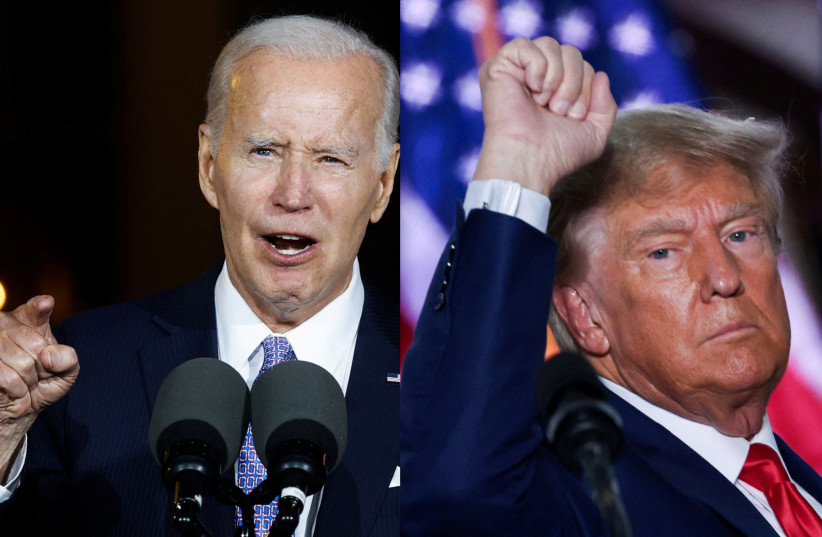Former President Donald Trump on Tuesday filed a US Supreme Court brief in his bid for immunity from prosecution for trying to overturn his 2020 election loss, with the case due to be argued before the justices next month.
Trump is appealing a lower court's rejection of his request to be shielded from the criminal case being pursued by Special Counsel Jack Smith because he was president when he took actions aimed at reversing President Joe Biden's election victory over him.
The filing makes arguments similar to ones Trump's lawyers previously made seeking to shield him from prosecution, and echoes statements Trump has made on the campaign trail.
"The president cannot function, and the presidency itself cannot retain its vital independence, if the president faces criminal prosecution for official acts once he leaves office," the filing said.
Trump, the first former president to be criminally prosecuted, is the Republican candidate challenging Democratic President Joe Biden in the Nov. 5 U.S. election.

Smith brought four federal criminal counts against Trump
Smith was appointed by US Attorney General Merrick Garland in November 2022. In August 2023, Smith brought four federal criminal counts against Trump in the election subversion case, including conspiring to defraud the United States, obstructing the congressional certification of Biden's electoral victory and conspiring to do so, and conspiring against right of Americans to vote.
The Supreme Court's decision to hear arguments on Trump's immunity bid on April 25 postponed the criminal trial, giving him a boost as he tries to delay prosecutions while running to regain the presidency. Trump has three other pending criminal cases.
Trump last October sought to have the charges dismissed based on his claim of immunity. US District Judge Tanya Chutkan rejected that claim in December.
On appeal, the US Court of Appeals for the District of Columbia Circuit on Feb. 6 ruled 3-0 against Trump's immunity claim, rejecting his bid for "unbounded authority to commit crimes that would neutralize the most fundamental check on executive power - the recognition and implementation of election results."
The case once again thrusts the nation's top judicial body, whose 6-3 conservative majority includes three justices appointed by Trump, into the election fray.
Trump and his allies made false claims that the 2020 election was stolen and devised a plan to use false electors to thwart congressional certification of Biden's victory. Trump also sought to pressure then-Vice President Mike Pence not to allow certification to go forward. Trump's supporters attacked the US Capitol on Jan. 6, 2021, in a bid to prevent the certification.
If Trump regains the presidency, he could seek to use his powers to force an end to the prosecution or potentially pardon himself for any federal crimes.
Trump has pleaded not guilty in all four criminal cases, seeking to portray them as politically motivated.
In a separate Supreme Court case to be argued on April 16, the justices have agreed to decide whether a man involved in the Capitol attack can be charged with obstructing an official proceeding - the congressional certification of the 2020 election results. That case has potential implications for Trump because Smith brought two obstruction-related charges against him.
